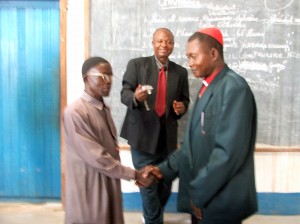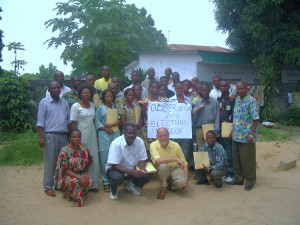Creating and holding a Safe, Secret, and Sacred Space: for a peacemaking and peacebuikding Conversation Between and Among People, and with God: from Luke24:13-35 [click to continue…]
{ 0 comments }
Creating and holding a Safe, Secret, and Sacred Space: for a peacemaking and peacebuikding Conversation Between and Among People, and with God: from Luke24:13-35 [click to continue…]
{ 0 comments }
 It was meant to act as a blessing on the one to whom it was spoken: “May your life be filled with health, prosperity, and victory.”
It was meant to act as a blessing on the one to whom it was spoken: “May your life be filled with health, prosperity, and victory.”
Peace Peace [N] [T] The Meaning of Peace. In English, the word ”peace” conjures up a passive picture, one showing an absence of civil disturbance or hostilities, or a personality free from internal and external strife. The biblical concept of peace is larger than that and rests heavily on the Hebrew root slm, which means ”to be complete” or ”to be sound.” The verb conveys both a dynamic and a static meaning”to be complete or whole” or ”to live well.” The noun had many nuances, but can be grouped into four categories: (1) salom [l’v] as wholeness of life or body (i.e., health); (2) salom [l’v] as right relationship or harmony between two parties or people, often established by a covenant (see ”covenant of peace” in Num 25:12-13 ; Isa 54:10 ; Ezek 34:25-26 ) and, when related to Yahweh, the covenant was renewed or maintained with a ”peace offering”; (3) salom [l’v] as prosperity, success, or fulfillment (see Lev 26:3-9 ); and (4) salom [l’v] as victory over one’s enemies or absence of war. Salom [l’v] was used in both greetings and farewells.
It was meant to act as a blessing on the one to whom it was spoken: “May your life be filled with health, prosperity, and victory.”
As an adjective, it expressed completeness and safety. In the New Testament, the Greek word eirene [eijrhvnh] is the word most often translated by the word ”peace.” Although there is some overlap in their meanings, the Hebrew word salom [l’v] is broader in its usage, and, in fact, has greatly influenced the New Testament’s use of eirene
[eijrhvnh].
God as the Source of Peace. God alone is the source of peace, for he is “Yahweh Shalom” (see Judges 6:24 ). The Lord came to sinful humankind, historically first to the Jews and then to the Gentiles, desiring to enter into a relationship with them. He established with them a covenant of peace, which was sealed with his presence (see Num 6:24-26 ). Participants were given perfect peace (salom salom [l’vl’v]) so long as they maintained a right relationship with the Lord (see Isa 26:3; 2 Thess 3:16).
The Old Testament anticipated, and the New Testament confirmed, that
God’s peace would be mediated through a messiah (see Isa 9:6-7; Micah 5:4-5). Peace with God came through the death and resurrection of Jesus Christ (Rom 5:1; Eph 2:14-17; Col 1:19-20; see Heb 13:20). Peter declared to Cornelius: ”You now the message God sent to the people of Israel, telling the good news of peace through Jesus Christ, who is Lord of all” (Acts 10:36).
The Relationship of Righteousness to Peace. The Lord established a covenant, which resulted in the participants receiving his salom [l’v] in abundance, ”like a river” (see Isa 48:18). However, peace could be disturbed if one did not live before the Lord and others in righteousness; in fact, peace is one of the fruits of righteousness (Isa 32:17-18). The psalmist poetically describes the relationship between the two as righteousness and peace kissing each other (Psalm 85:10). The God of peace and the peace of God sanctify the child of God (see 1 Thess 5:23). On the other hand, Scripture specifically states that there can be no peace for the wicked (Isa 48:22; 57:21). Paul described the difference as follows: ”There will be trouble and distress for every human being who does evil: first for the Jew, then for the Gentile; but glory, honor and peace for everyone who does good: first for the Jew, then for the Gentile” (Rom 2:9-10).
One of the key issues among the prophets was the doctrine of ”peace.” The false prophets proclaimed ”peace, peace” and in that announcement hoped to create peace for their constituency. The true prophets argued that peace could never be achieved apart from righteousness and justice. In this light, one can better understand what Jesus meant when he declared, “Do not suppose that I have come to bring peace to the earth. I did not come to bring peace, but a sword” (Matt 10:34). And Paul wrote, ”The God of peace will soon crush Satan under your feet” (Rom 16:20). Judgment on sin, historically and eschatologically, must come prior to peace.
 Good governance, transparency, accountability, human Rights and the rule of law
Good governance, transparency, accountability, human Rights and the rule of law
Peace in the Age to Come. In the age to come the animal kingdom will be restored to its paradisiacal tranquility. The image in Isaiah 11:6-11 is
among the most picturesque in Scripture. Animals are paired off in a strange and wonderful way: the wolf and the lamb, the leopard with the kid, the calf with the lion, the cow with the bear, the lion with the ox. They shall be led by a little child. The emphasis is on the harmony, the salom [l’v] between the animals and the animal kingdom with man. Children shall, in that day, be able to play with snakes and they will not be hurt.
In addition, the curse of the ground will be removed and the land will again be characterized by salom [l’v], which includes both harmony and productivity (see Amos 9:13-15). The desert will become a fertile field (Isa 32:15), while the cultivated lands will drip with ”new wine” and the ”ravines of Judah will run with water” (Joel 3:18).
The nations of the world will come under the dominion of the ”Prince of Peace” and in so doing, ”will beat their swords into plowshares and their spears into pruning hooks” (Isa 2:4; Micah 4:3). Isaiah poetically characterizes it as a time when ”You shall go out with joy and be led forth in peace; the mountains and hills will burst into song before you, and all the trees of the field will clap their hands” (Isa 55:12).
One cannot overlook the fact that this harmony will never happen until man has a right relationship (salom [l’v]) with Yahweh; it will be the result of the righteous rule of the ”shoot from the stump of Jesse” who has upon him the Spirit of Yahweh; he is the ”Prince of Peace” (Isa 9:6; see Jer 33:8-9).
{ 1 comment }